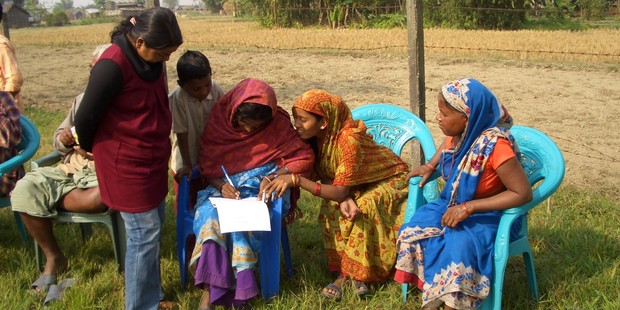PRABHAKAR GHIMIRE
KATHMANDU, Sept 29:
A high-level Nepali delegation that completed a week-long visit to
Saudi Arabia recently is set to recommend a raft of measures to the
government, including immediately opening two consulate offices, signing
a labor pact and appointing lawyers to support legal battles for Nepali
workers in the desert kingdom.| A team of senior officials led by Som Lal Subedi, secretary at
the Ministry of Labor and Employment (MoLE), visited different parts of
Saudi Arabia, home to over 500,000 Nepali workers according to
government data.
The team that met senior Saudi officials, has indentified excessive levies being collected by Nepali recruiting companies, unnecessary layers of brokers in both countries, huge number of run-away workers, double contracts for the same jobs, the bad track record of employer companies and problems for the embassy in fighting legal battles due to lack of lawyers as the major problems of Saudi employment. “In view of the rising number of legal cases involving Nepali workers, we are recommending two consulate offices, in Dammam and Jeddah, and appointing of local staff so that our embassy can respond promptly to any untoward event involving Nepali workers,” a senior official in the team told Republica on Saturday. The recommendations are soon to be submitted to Chief Secretary Lilamani Poudel through MoLE. The official also said the team is suggesting to the government to sign a labor pact to secure the interests of Nepalis working in the desert kingdom, where the incidence of abuse by employers is very high. “Saudi officials are showing interest in signing a memorandum of understanding (MoU) on labor. A labor pact can help minimize cases of abuse and secure the rights of Nepalis employed in this biggest labor destination,” the official added. Given the complicated legal process of dealing with different problems, including repatriating bodies in case of death, settling compensation from employers and legal battles to secure rights, the team is also recommending appointing legal advisors for the embassy, which has so far been relying on local interpreters. The recommendation also stresses effective enforcement of the government-set fee to be levied from job aspirants by manpower agencies, enhancing the skills of job seekers through training and effective orientation prior to departure for Saudi Arabia, and improving the behavior of job aspirants. “We are also concerned about the deteriorating reputation of Nepali manpower agencies, which has diverted the demand for workers to other source countries. Nepali agencies have to show their sincerity by cutting the levy amount,” said the official. The team has found that manpower agencies are levying up to Rs 100,000 each even from job seekers whose recruiting cost is borne entirely by employers. The government has permitted manpower agencies to collect Rs 70,000 per job seeker for Saudi jobs in cases where employers are not bearing the recruiting cost. “Layers of agents between employers and job seekers have driven up the cost of getting jobs. So we need to establish a mechanism to reduce the number of agents in the recruiting process,” the official said. The team has also indentified an increase in the number of cases of workers leaving their previous jobs, workers coming via India without government permission, and multiple labor contracts for the same job. Such workers end up with illegal status. According to officials, around 100,000 Nepalis are working illegally in Saudi Arabia. They are employed mainly as construction, manufacturing and agricultural workers and housemaids. |
||


